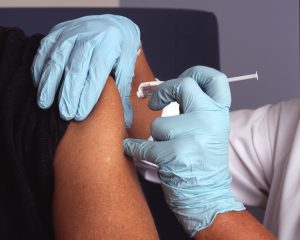The limiting factor of seasonal flu vaccine production is that each vaccine can only address up to four different flu viruses, and many more than four run rampant each flu season. Therefore, if the industry’s professional prognosticators put all their chips on strains that don’t end up being predominant, the painstaking process is rendered a complete waste of time and resources — and leaves the public vulnerable to the ravages of an unmitigated, full-on flu season.
It turns out that mRNA technologies, which have recently grabbed major headlines in cancer and COVID-19 treatment advancement for various companies, may be the key to improving accuracy and effectiveness in flu vaccines, and could be the long-sought-after critical element that guides the development of a universal flu vaccine.
According to the results of a study as published in Science, research teams from the Perelman School of Medicine at the University of Pennsylvania were able to construct an mRNA-based vaccine that targets all 20 currently identified subtypes of the A and B flu virus. Mice immunized with the vaccine produced antibodies to the 20 lineages and avoided death when subjected to flu strains from each of the subtypes.
“The idea here is to have a vaccine that will give people a baseline of immune memory to diverse flu strains, so that there will be far less disease and death when the next flu pandemic occurs,” said Dr. Scott Hensley, a senior author of the study.























